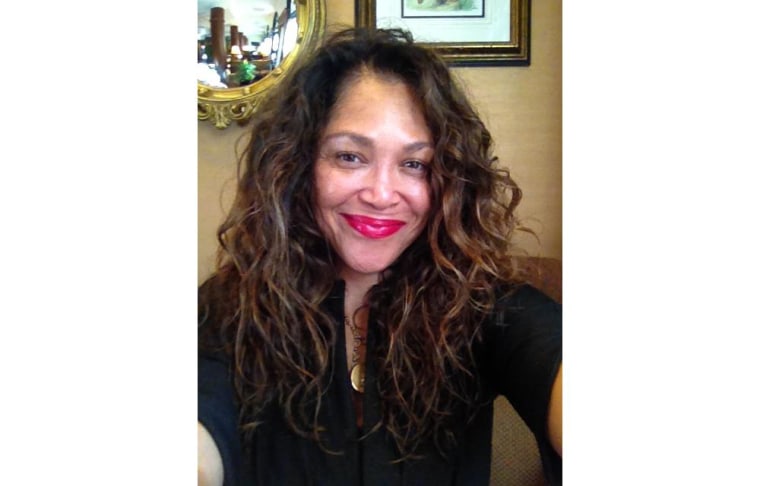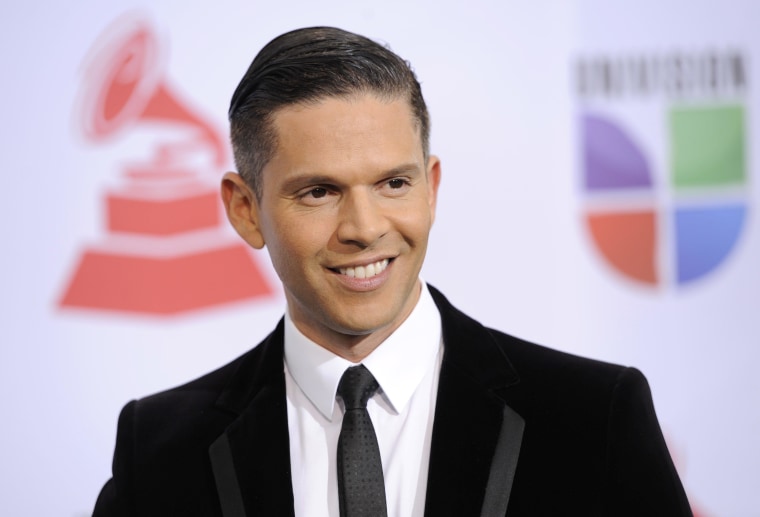One summer day, I was 14 and on top of the world. I’d just been accepted to represent my high school in a youth political convention at Rider University in my home state of New Jersey. My best friend and I were walking home, laughing and eating ice cream, when we came across my friend’s father, a black Ecuadorian immigrant. The dad sized me up and down and said that I would be a lot prettier if I didn’t have that "African" nose.
What would compel an adult to say that to a young resplendent teen was beyond me. My shock and hurt were physically palpable; my buddy stood up to his father and chastised his ignorance. I cried myself to sleep that night. At 18, I had saved enough money and at 19, I got a nose job.
I was reminded of those painful experiences after hearing Univision host Rodner Figueroa's derisive comments of Michelle Obama, a smart and beautiful role model who has done so much for this country. He followed the comments with efforts to defend himself by saying that he was criticizing a makeup artist instead and that, by the way, he also has African roots.
The saddest part about the incident is that Figueroa and others who have said these kinds of comments have so internalized this they don’t see what the big deal is.

The kind of racist banter he engaged in on the show is par for the course in many Latino homes and media outlets, though we are loath to admit it. It’s refreshing to see that Univision declared zero tolerance to racism, but more should be done.
Figueroa’s dehumanizing comments brought me back to the moments when I was jokingly told by family members to use a clothespin to make my flat, African nose — a legacy of my black Puerto Rican father — more thin so it could look like one of my sisters, who was born blond, fair and with my mother’s more European features.
It reminded me of the times when I would hear jokes about my oldest sister’s halo of kinky hair. Her nickname was “coil” alluding to her gorgeous spirals. In Spanish kinky hair is referred to as pelo malo, which translates to "bad hair."
As a child, one internalizes images and comments. In Puerto Rico it would seem black women were not pretty enough to compete in regular beauty contests since there is one customized for us brown girls called Miss Piel Canela (Miss Cinnamon Skin), where colored girls can aspire to also wear a crown.
Follow NBC News Latino on Facebook and Twitter
My friend Neyda Martinez, a Chicago-born Puerto Rican producer of cultural programs, was not surprised by the disparaging comments that made it on the air. The comments also took her back to her childhood. When she was born, she was listed as black on her birth certificate and it was only when hospital officials saw her father that her race was “changed” to Hispanic.
But for Neyda's mother, there was no confusion. Her black heritage or ancestry was something not to be erased or confused but rather a cause for celebration (El Gran Combo, Cortijo and Rafael Ithier rehearsed in her home almost every day). Her late mom bought her black dolls and talked to her Boricua blackness with orgullo (pride). Neyda grew up living comfortably as Latina and black. It was when she stepped outside her home,however that she said it was not OK. Latino and non-Latino kids on the playground called her the "n" word.
Racial identification in Latino culture is complicated. In fact, affirming my Puerto Rican blackness is not to deny all the other racial and ethnic ancestry that makes up my heritage.
Some of us may not look black but that doesn't mean we are not.
The good news is we are living in a different time. Latinos are increasingly embracing our blackness with pride and are not letting disparaging and disappointing comments go unnoticed. Latino kids who have grown up listening to reggaeton artist Tego Calderon affirming black pride and Don Omar beautifully rocking cornrows are standing up.
But until we get there, we deal with one ignorant comment at a time. The firestorm that has occurred should send a chilling message to all those folks who think that talk like this is funny and OK. It has no place on the air, on a set, in our living rooms. It should also be a wake-up call to Spanish-language network executives to hire more black and indigenous talent in front and behind the cameras, in telenovelas, news and entertainment shows.
We still have a ways to go. Tego Calderon once said to me during an interview that what blacks in Latin American and the Caribbean need is a civil rights movement just like the one that we had in the U.S.
I agree.
